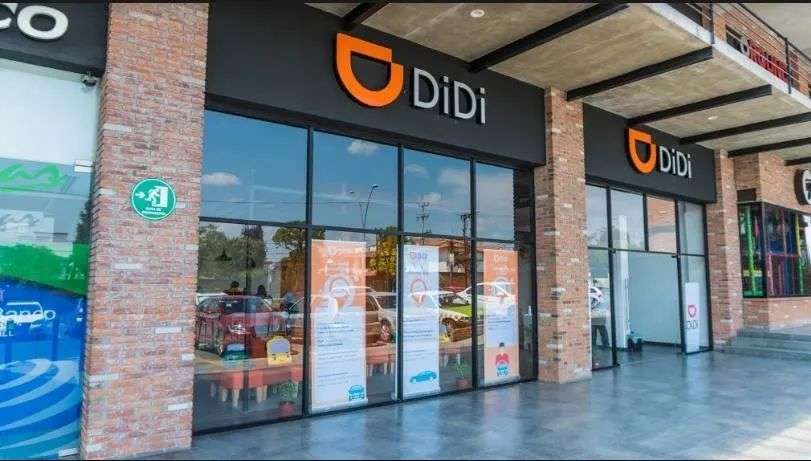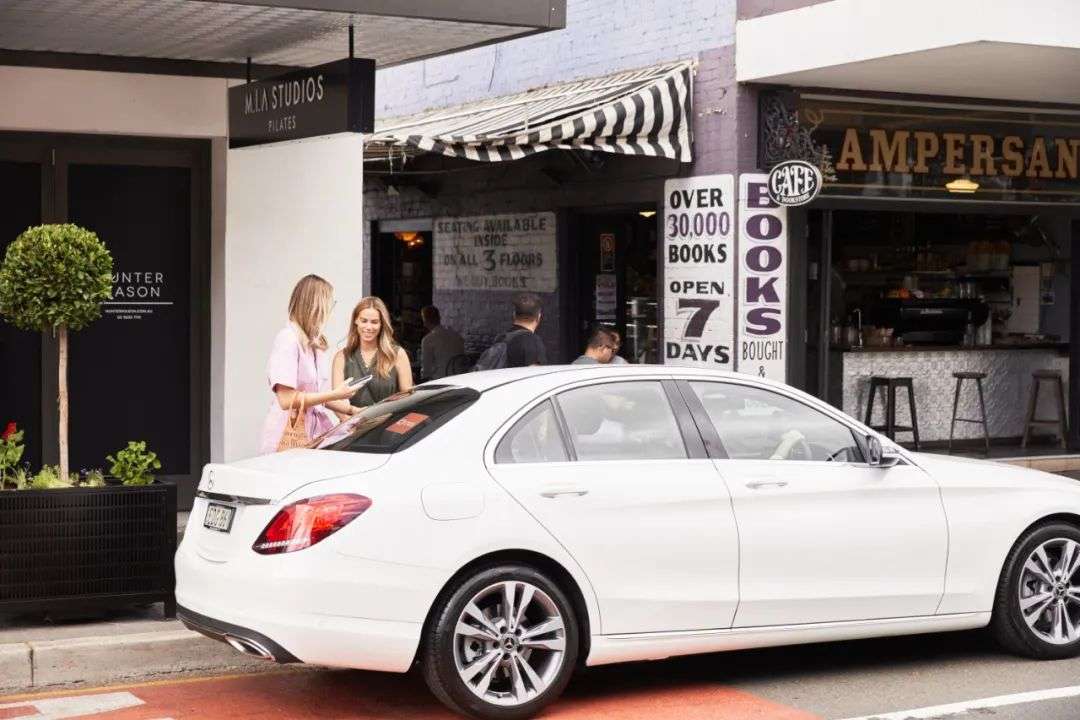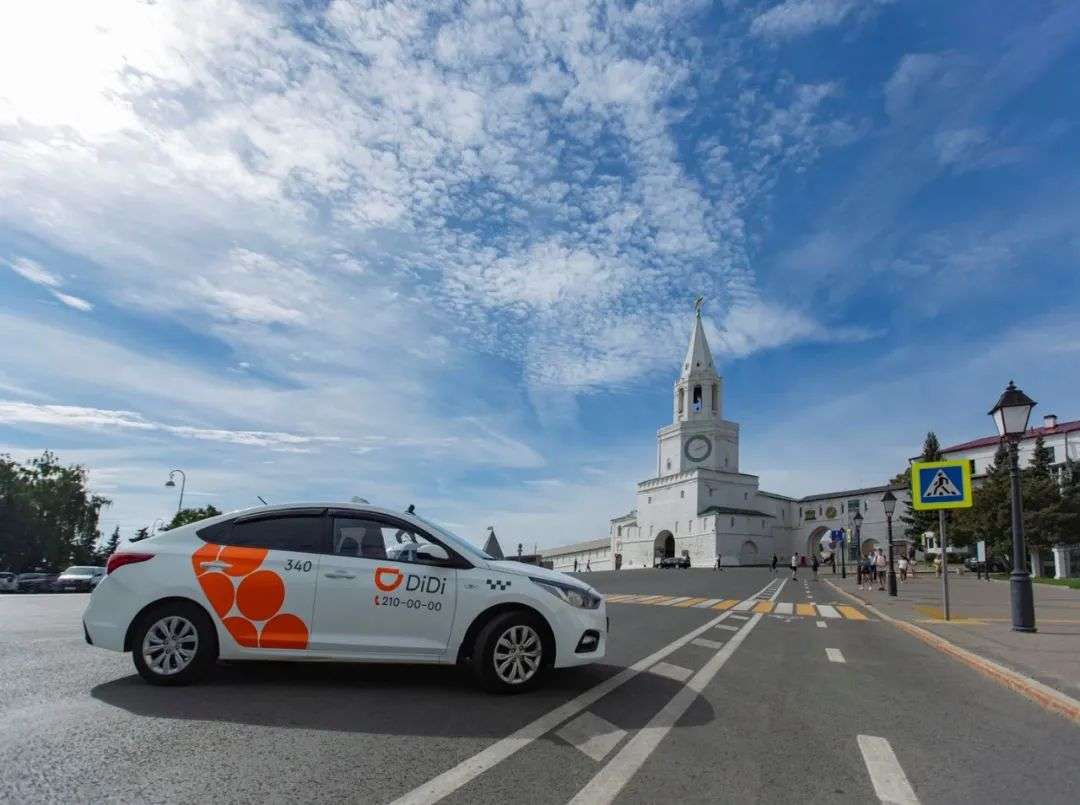The offline capabilities that Didi has accumulated in China will also become a competitive advantage for its business development overseas for a long time.
Didi won another victory overseas.
On March 29, Didi Chuxing announced that it will start recruiting drivers in Cape Town, South Africa’s second largest city, and will officially operate there in the near future. Prior to this, Didi had trial operations in Port Elizabeth, one of South Africa’s main ports, on March 1, which meant that it officially entered the African market. In less than a month, Didi has attracted more than 2,000 driver registrations in Port Elizabeth, providing services to more than 20,000 local users.
As of now, Didi has been launched in 14 overseas countries, and its business mainly includes travel and food delivery. In addition to South Africa, it also includes Australia, New Zealand, Japan, Brazil, Mexico, Chile, Colombia, Peru, Costa Rica, Panama, Russia, Dominica and Argentina.
Different from traditional enterprises that have been cultivating domestically for many years and then going international, Didi’s overseas business is almost synchronized with the rapid development of domestic business. As early as 2015, Didi’s internationalization began to take shape. When the domestic market stabilizes, overseas has become a new continent full of imagination.
The travel platform Uber has verified the vastness of the market globally, and what Didi has to do is to fully prove its capabilities in overseas markets.
The Didi Home in Mexico
Before late, LatePost quoted insider sources as saying that Didi currently has more than 50 million users in overseas markets and has accumulated more than 1 billion travel and takeaway orders in a year. If the epidemic situation is optimistic, by the end of 2022, Didi’s international market will achieve the goal of increasing the cumulative annual orders for the entire business line from 1 billion to 5 billion.
In April 2020, Didi Chuxing CEO Cheng Wei announced the goals for the next three years at the company’s strategy meeting: “Safety” is the cornerstone of Didi’s development, and everything goes to zero without safety; to achieve global daily service within three years1 100 million orders; domestic all-travel penetration rate 8%; globalThe service user MAU exceeds 800 million, which is the “0188” strategy.
It is reported that the internationalization department plans to reach an average of 10 million orders per day within three years.
10 million orders, although this is only equivalent to nearly one-third of Didi’s current domestic daily orders, it is enough to support an overseas market. Unlike almost rare rivals in the domestic market, Didi faces fierce competition in various overseas countries. These include Uber, which once competed head-on with Didi in China, and countless local companies. The epidemic that is still pervading many countries also caused the unit volume of Didi’s international department to drop to the bottom.
Benefits and misfortunes depend on each other, and the epidemic has also turned Didi’s overseas journey into a turn. At the beginning of last year, its domestic prevention and control measures against the epidemic have also been effectively verified overseas, which has brought new capacity and brand effects to the company. The epidemic has enveloped the world, and Didi International has opened 6 new countries.
Two passengers in Australia use Didi to call a taxi
Broader market
At the end of 2018, Cheng Wei announced the establishment of a strategic business group with an international business department. Zhu Jingshi, then vice president of Didi, served as the head of the strategic business business group and the international business department, and the organizational structure prepared Didi to enter the overseas market.
The appointment of Zhu Jingshi illustrates Didi’s emphasis on international business. Zhu Jingshi came to Didi from Goldman Sachs with Liu Qing, the president of Didi Travel, and used his own efforts to raise 3 billion US dollars for the company, helping Didi obtain huge financial support in domestic competition.
For Didi, overseas is a huge market. Cheng Wei mentioned in an interview in 2017 that Uber’s global strategy has touched Didi: “Uber came to China three years ago, and I realized that we are one dimension lower than Uber. It is like an octopus, with its head in the United States. I stretched out a tentacle to China, so it’s useless to attack only one tentacle.”
Liu Qing made a calculation. Didi’s average daily order completion number of 14 million in 2016 was divided by China’s 800 million urban population. The total number of daily trips is optimistic about 1.3 billion trips. Didi’s market penetration rate It’s about 1%, and San Francisco is 15%. This was the foundation of Didi’s vision under the high growth rate at the time.
Didi’s overseas business goes back to the end of 2015. Didi began to cooperate with Lyft in the United States, Grab in Southeast Asia, and Ola in India.Together, they established a global cooperation framework for shared travel, opened up products, and then strategically invested in these three companies. At that time, this alliance was jokingly called the “anti-Uber alliance” by public opinion.
This allowed Cheng Wei to see more possibilities in overseas markets.
At that time, we were in the craze of Chinese companies going overseas. Didi had to be a one-stop travel platform. As a company that can reach the level of hundreds of billions of dollars, it has a long-term vision.
In April 2016, Didi Travel and Lyft announced the completion of the first phase of product integration, and “Didi Overseas” was officially launched, completing an important step in internationalization. In August of that year, Uber China’s Didi was “eaten”, which completely cleared away domestic competition barriers and laid the foundation for overseas investment.
The first stop was Brazil. In Didi’s view, China and Brazil are both emerging markets with global attention. The economic transformation and urbanization trend have brought huge development opportunities for the shared travel industry. Brazil is also a country with a high degree of PC and mobile Internet use in the world.
Brazil already had a local online ride-hailing company99 at the time. This company, born in 2012, is the largest local taxi-hailing software company in Brazil. Before Didi entered, it had more than 140,000 registered drivers and more than 10 million downloaders. Wei Fangdan, CEO of the sea service platform Beluga, once told the media that many cities in Latin America have large areas and large populations, and this medium- and long-distance environment has a large demand for cars. More importantly, at that time, Latin America was also Uber’s fastest-growing region in the world.
One month before the establishment of the International Business Unit, Didi announced that it had invested in 99, the Brazilian taxi-hailing software, which formally opened the local market, and then achieved complete control over 99 through holdings.
Liu Qing once revealed that as of 2019, Didi had more than 20 million users in Latin America, with approximately 1,200 employees, accounting for one-tenth of Didi’s global employees. Its business lines include express trains and taxis. And takeaway.
In the four years since entering Brazil, Didi has entered 14 countries including Australia, New Zealand, and Japan.
Didi enters Russia
New takeaway competition
In the process of internationalization of online ride-hailing, Didi has “matched” its takeaway business again.
DidiThe earliest exploration of this business was in 2017. At that time, the domestic food delivery giant just tested the online car-hailing business at the beginning of the year. Therefore, in the eyes of the outside world, Didi’s food delivery is a precise counterattack.
This may be one reason, but it may not be the most important. At least in the domestic market that year, food delivery was a rigid demand, high-frequency business, and Didi had the ability to operate and localize. Ride-hailing was also considered a relatively bitter and tiring business, and food delivery was not a complete surprise to Didi. Act of.
However, in China, the takeaway business at that time has entered the second half. If you want to start the volume quickly, Didi will need to continue to provide large subsidies, which will be an incalculable consumption.
Soon, Didi once again set its sights on overseas markets. In 2018, Didi International also established a food delivery business unit, with a dedicated Product Operation team, committed to building a middle stage for production and transportation, and supporting the growth of global food delivery business. Currently, Didi’s takeaway business is mainly carried out in Brazil (21 cities), Mexico (41 cities), and Japan (58 cities, 5 counties).
Different from selling by tram at home and abroad, Didi’s take-out couriers in overseas markets can deliver by car. Online ride-hailing drivers can also be part-time riders. This is another synergy and integration of Didi’s international travel business and food delivery business.
In addition to online car-hailing and food delivery services, Chinese companies have already mastered the advantages of big data. They have relatively in-depth research on user habits, allocation and scheduling, and their business operations are quite mature. In terms of products and technology, there are basically no major problems. .
Like online car-hailing, the GMV value brought by the takeaway business is extremely high. As early as the end of 2017, Dusan Vatanni, the general manager of Uber’s food delivery business in London, revealed that the scale of Uber Eats in 19 European cities has surpassed the scale of Uber’s ride-hailing business. This business is the fastest growing food in the world. One of the takeaway services.
Uber Eats has tens of millions of orders every day around the world. In 2017, the revenue of food delivery services exceeded 3 billion U.S. dollars.
Online ride-hailing + food delivery business has grown rapidly in recent years in Mexico and other Latin American regions and densely populated countries such as India, and there are almost no very strong local companies.
The financial report when Uber went public showed that from 2016 to 2018, online car-hailing plus food delivery contributed more than 94% of Uber’s annual revenue, which supported nearly 100 billion U.S. dollars when Uber went public. Valuation.
And Didi obviously wants more than Uber. Didi insiders once talked about the gap with Uber and believed that Didi is more efficient and has stronger operational capabilities. “Didi is a more striving company than Uber.”
After that, Uber experienced storms such as the departure of the founder, the retreat of the business, and even the bloody listing. Didi believes that Uber is not unshakable, in a country where competition is becoming more and more diversified.The international market was an excellent opportunity at that time.
According to foreign media reports, 99Food (Didi’s Brazilian takeaway brand) currently has 60,000 cooperative restaurants and 40,000 riders, and is expected to achieve 150% growth in 2021. The business team believes that the Brazilian market has not yet been developed, and there is great room for expansion. Calculated by dividing each takeout order by the total population of the city, in cities such as Shanghai, China, the proportion of users ordering takeout every day is 7%, while in Brazil the proportion is only 0.9%. In large European cities, this ratio is between 3% and 5%.
According to Reuters, Didi’s market share in Mexico in 2020 has exceeded 40%, and even surpassed Uber at one time. The latter was clearly hit hard in Latin America, its once second largest market. In the third quarter of 2020, Uber’s local revenue decreased by 40% year-on-year. Not only because of the new crown pneumonia epidemic, but also because of Didi.
Now, Didi is going to do business in more countries.
Didi provides takeaway business in overseas markets
For Didi, online car-hailing and food delivery businesses have another significance. One of Uber’s previous advantages is that although its global unit volume may not be as high as Didi, it has a higher customer unit price. Uber’s average customer unit price in developed countries such as Europe and the United States is between 20 and 30 US dollars. Didi’s domestic customer unit price is also in this range, but it earns in RMB. After conversion, you will find that there is a significant gap.
And Didi’s going to sea is obviously an important measure to bridge the gap.
Risks and opportunities
Didi’s journey to sea has not been smooth sailing. The difficulties and pressures that Didi has encountered in China need to be repeated overseas.
First, you need to pass the talent barrier. Recruitment is the first difficulty commonly encountered by Didi overseas employees. According to a Didi Latin American employee, his main job during the first half of his trip was to interview new recruits intensively, and he had seen more than 200 job seekers in less than three months.
The second is the form of payment. Didi was founded in 2012 and quickly caught up with the wave of domestic mobile payments. In April 2013, Didi received $15 million in Series B financing from Tencent. Backed by Tencent, Didi quickly connected to mobile payment. By the end of 2013, Didi accounted for nearly 60% of the ride-hailing market.
But many overseasThe country has still not been able to popularize mobile payment until today. In Latin America, for example, banking services are expensive, third-party payment is underdeveloped, and 30% of the population is completely dependent on cash. The driver carrying cash is also a huge security pain point.
Currently, Didi is cooperating with the local area to launch debit cards and wallets in Brazil and Mexico, reducing security risks and making it more convenient for drivers to withdraw cash to subsidize their families. 99 users in Brazil can use 99Pay to pay for travel, takeaway, utility bills and phone bill orders online. At the same time, Mexican users can also use Didi to pay for utility bills and telephone bills.
According to foreign media reports, since the beginning of this year, 99Pay has continued to be promoted in more cities in Brazil. In the cities where 99Pay is used, the proportion of cash payments has dropped from 70% to 60%, and the personal safety factor of drivers has also been improved.
On the way out to sea, there are occasional black swan incidents.
The COVID-19 pandemic that swept the world last year has had a big impact on Didi’s domestic and foreign markets. In March 2020, Didi’s overseas orders fell to the lowest point. The original plan to open a new country was temporarily shelved.
The epidemic has brought countless uncertainties. When will it be possible to continue its business, whether the order volume can rise, whether it needs to acquire a new payment company… are all difficult problems facing Didi. Of course, its competitors cannot escape the impact of the epidemic, and they are equally helpless.
In the end, it was the domestic methods and means to fight the new crown that helped Didi to recover in an orderly manner in overseas markets. Not only did Didi actively adopt anti-epidemic measures such as setting up a security fleet, setting up offline killing stations, and installing protective films on vehicles, it has also promoted these measures overseas.
Didi’s overseas vehicles are also equipped with protective films
Didi has set up a special disinfection vehicle in Brazil, installed protective films in Mexico, and adopted the “Didi Hero” program in many countries to provide free or discounted travel and takeaway services to 3 million front-line personnel in the fight against the epidemic. These anti-epidemic measures have been highly recognized locally.
In addition, during the epidemic, Didi launched errand business in Mexico, Chile, Australia and other markets. This service is also open to online car-hailing drivers, which provides convenience to local users while also increasing sources of income for drivers.
So when the epidemic enveloped the world last year, Didi International still opened 6 new countries (Panama, Argentina, Peru, Dominica, Russia, New Zealand).
The difficulty of expanding new business under the epidemic can be imagined. Locally, they are always at risk of the spread of the epidemic and the city blockade. The most exaggerated thing is that not long after entering Panama in March last year, the area was blocked due to the epidemic, and the team had to wait until November to reopen the city after recovery. This obviously requires a lot of flexibility and resilience of the team, and requires extremely strong offline capabilities.
During the epidemic, SME owners are the most affected. In order to help local small and medium-sized business owners who operate restaurants to tide over the difficulties, Didi Waimai launched joint promotional activities to stimulate user demand. The sales of restaurants that participated in the joint promotion event were three times that of those that did not participate in the event. In Mexico, 90% of restaurants that have access to Didi Food Delivery are still operating.
To a certain extent, the takeaway business is a product of the epidemic, but it also made up for the losses caused by the epidemic for local SME owners.
The overseas expansion of international business against the trend is inseparable from the offline capabilities accumulated in China. The mobile travel industry is essentially a business of transporting people offline. This places extremely high requirements on the safety, service, and operational capabilities of a travel platform. The offline capabilities that Didi has accumulated in China will also become a competitive advantage for its business development overseas for a long time.





